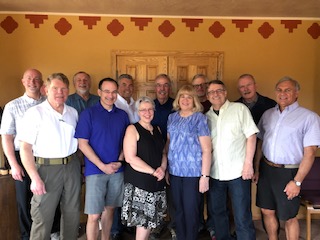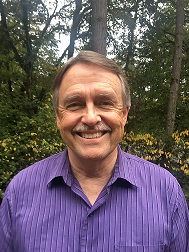Embracing the Challenges and Opportunities of Worship in the Digital Age

Editor’s note: Congregations using music, videos, and other items downloaded from the internet should check on whether they have copyright permission for streaming them over the internet as part of worship services. CCLI and similar licenses often do not grant such permission. Read carefully in the documentation of your license to learn what you do and do not have permission to stream outside the building, or seek legal advice.
I know: The above title is too long. But let’s not quibble. This is too important an issue. And many of you reading this can do something to address this ministry challenge; hopefully sooner rather than later.
Fundamentally, this is about what is passing for streamed worship services during this pandemic, and how we can do so much better. Because here is the brutal truth: Worship life post-COVID will not be returning to the “normal” we remember before the year 2020. Why? Post-pandemic, in-person worship attendance will, for most congregations, be at least 25% to 40% below what they had in 2019. Too bleak? Well, as the saying goes, “Just wait.” Most congregations — especially those that just launched their online, streamed worship services in 2020 — will find that many of their members have grown too comfortable with the ease and comfort of in-home worship. And for those members who have largely avoided in-person worship since early 2020, it’s almost like they’ve left their congregational community for a one-year (or longer) deployment. As a result, many of them will find it’s easier to stay away than it is to return to in-person congregational life and worship.
So what can be done about this? The biggest initial challenge will be to focus on the mission opportunity that is before us. Because improving the quality of your online worship ministry can not only retain members; it can reach new people with the Gospel. However, before going over practical ways to improve your online worship ministry, one caveat: It will take a very intentional and on-going effort to motivate online worshipers to grow in their faith. More on that later.
Now for practical suggestions for improving the quality of your online, streamed worship services.
Online Worship Music
The first step is to recognize the obvious: That the online worship experience is very different than pre-COVID, in-person worship. I have watched online services from scores of different Lutheran churches over the last year. Some have been inspiring; most have been disappointing. My biggest disappointment has been online worship music; especially in the case of small and mid-sized congregations. Disappointing in what way? The lack of quality music. This has been true in respect to both congregational hymns/songs, and performed music such as anthems and solo performances.
Part of the problem here is that with online worship I find myself becoming even more of a music critic. With in-person worship not so much; partly because in the case of hymns and songs I am participating. With “couch potato” worship I tend to be a passive member of an audience of one. So if I notice the worship vocal team is struggling, or an instrument is slightly out of tune, the music becomes an unfortunate distraction. This critical appraisal also applies to solos; whether vocal or instrumental.
The solution? Only select the songs and hymns that can be done well. Remember that, in the case of online worship, this is essentially a performance for your online audience. So it needs to not only be easy enough for your musicians to do well; it also needs to be of high enough quality — both musically and lyrically — to do at all. For some smaller congregations with a limited number of talented musicians and vocalists available, this might mean less worship music than you offer at your in-person service. So in this case, “less is more.”
However, if you can access Christian music available from the internet for your online service, do so. This can be an invaluable and inspirational resource. If your congregation has the necessary technological capability to access online music videos, contact me. I have specific videos I can recommend.
Worship Liturgies for Online Worship
Move toward a “service of the Word” more than a full musical liturgy. Again, this is because your online worshipers are unlikely to participate in sung responses. The one exception to this principle might be if your liturgist has a solo-quality voice. In that case hearing the chanter sing both call and response portions of the liturgy might still be meaningful to your online worshipers. However, the overall principle is this: Online worshipers are more likely to participate in spoken liturgical responses than those that are sung.
Sermon Message
I have found sermons, by in large, to be effective and meaningful online. Suffice it to say that the great majority of recommendations for what constitutes quality preaching in person also apply to online messages. My one suggestion would be this: For pastors who have the time and energy, you might want to do a video sermon that is specifically crafted for an online audience. Especially post-COVID, the majority of your online worshipers will be very different than most of your in-person attenders. And the biggest difference will be the contrast between those with an unchurched vs. churched background. As an added bonus give different messages for your in-person and online service. You can encourage members to participate in both services on a weekly basis.
Communion Practice
It depends. If your congregation is more high-church you might want to offer consecrated elements to be picked up at church in advance. Perhaps you can even offer to deliver the elements to the homes of some members. If your congregation is more low-church, then invite online worshipers to have the elements ready at home so they can participate during that part of the service.
Online Worship and Technology
One final and obvious challenge in regards to providing meaningful online worship is the matter of the technology involved. There is no way to address this with detailed, specific recommendations due to the unique challenges faced by each congregation. But one important and more general recommendation: Whether it be your video streaming or sound system, only offer what you can do well. In other words, don’t let your creativity in worship planning get ahead of what your “systems” and tech volunteers can handle without major glitches or disruptions to the “flow” of your service.
None of the above recommendations address the significant and often overwhelming challenge of actually discipling online worshipers. I will address that in the May issue of this newsletter. (This article is already long enough.) My next article will cover, in some detail, the following strategies for discipling online worshipers:
1. in-home, “micro” worship gatherings
2. small group Bible studies
3. one-to-one coaching ministries; online, by phone, or in-person
4. organizing discipleship/accountability triads
5. pastoral care and discipleship
Pastor Don Brandt
Director, Congregations in Transition ministry













